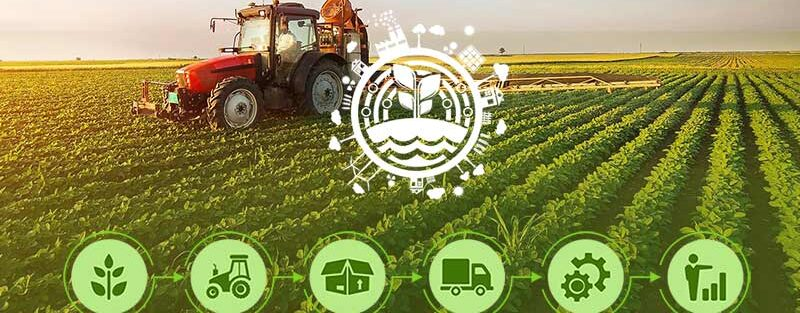The agricultural sector is the backbone of Nigeria’s economy, employing approximately 30% of the workforce and contributing around 24% to the country’s GDP. However, Nigerian farmers face numerous challenges, including limited access to information, inadequate technology, and inefficient farming practices. To address these issues, agricultural digital extension has emerged as a promising solution. This article explores the concept of agricultural digital extension, its challenges, and opportunities in Nigeria.
What is Agricultural Digital Extension?
Agricultural digital extension refers to the use of digital technologies, such as mobile phones, computers, and the internet, to provide farmers with access to information, advice, and services that can improve their farming practices and productivity. Digital extension platforms can offer a range of services, including:
- Advisory services: Providing farmers with expert advice on best practices, pest management, and crop disease control.
- Market information: Connecting farmers with buyers, providing market prices, and facilitating sales.
- Financial services: Offering access to credit, savings, and insurance products tailored to farmers’ needs.
- Input supply: Enabling farmers to purchase seeds, fertilizers, and other inputs online or through mobile platforms.
Challenges Facing Agricultural Digital Extension in Nigeria
Despite the potential benefits of agricultural digital extension, several challenges hinder its adoption in Nigeria:
- Limited Infrastructure: Nigeria’s rural areas often lack reliable internet connectivity, electricity, and adequate ICT infrastructure, making it difficult to implement and sustain digital extension services.
- Low Digital Literacy: Many Nigerian farmers, particularly in rural areas, have limited experience with digital technologies, which can create barriers to adoption and usage.
- Language Barriers: Nigeria’s diverse linguistic landscape can make it challenging to develop digital extension platforms that cater to different languages and dialects.
- Funding and Sustainability: Digital extension platforms require significant investment to develop and maintain, which can be a challenge in resource-constrained environments.
- Data Management: Collecting, storing, and analyzing data on farmers’ needs, preferences, and behaviors can be complex, especially in contexts with limited data infrastructure.
Opportunities for Agricultural Digital Extension in Nigeria
Despite these challenges, agricultural digital extension presents numerous opportunities for Nigeria’s agricultural sector:
- Increased Efficiency: Digital extension platforms can streamline information dissemination, reducing costs and improving the timeliness of advice and services.
- Improved Access to Information: Digital extension can bridge the information gap for farmers in remote areas, providing them with access to expert advice, market information, and other critical services.
- Enhanced Productivity: By providing farmers with relevant information and services, digital extension can contribute to increased crop yields, better pest management, and more efficient use of resources.
- Market Access: Digital platforms can connect farmers with buyers, enabling them to sell their produce at better prices and improving their income.
- Empowering Women and Youth: Digital extension can provide opportunities for women and youth to access information, training, and markets, promoting inclusivity and social equity.
Examples of Successful Agricultural Digital Extension Initiatives in Nigeria
Several initiatives have demonstrated the potential of agricultural digital extension in Nigeria:
- Farmcrowdy: A digital platform that connects farmers with investors, providing access to funding, inputs, and markets.
- Hello Tractor: A platform that enables farmers to rent tractors and other farm equipment, improving mechanization and productivity.
- Esoko: A digital platform that provides market information, advisory services, and other resources to farmers.
Way Forward
To harness the potential of agricultural digital extension in Nigeria, stakeholders should:
- Invest in Infrastructure: Governments, private sector, and development partners should invest in improving ICT infrastructure, particularly in rural areas.
- Develop User-Friendly Platforms: Digital extension platforms should be designed with user-friendly interfaces, taking into account the needs and limitations of Nigerian farmers.
- Promote Digital Literacy: Training programs should be implemented to enhance farmers’ digital literacy and capacity to use digital extension platforms.
- Foster Partnerships: Collaboration between governments, private sector, and development partners can help leverage resources, expertise, and funding to support digital extension initiatives.
- Monitor and Evaluate: Regular monitoring and evaluation of digital extension initiatives can help identify best practices, challenges, and areas for improvement.
Conclusion
Agricultural digital extension has the potential to transform Nigeria’s agricultural sector by improving access to information, enhancing productivity, and promoting market access. While challenges exist, successful initiatives demonstrate the potential for digital extension to make a positive impact. By addressing the challenges and leveraging opportunities, Nigeria can harness the power of digital technologies to promote agricultural development and improve the livelihoods of its farmers.

